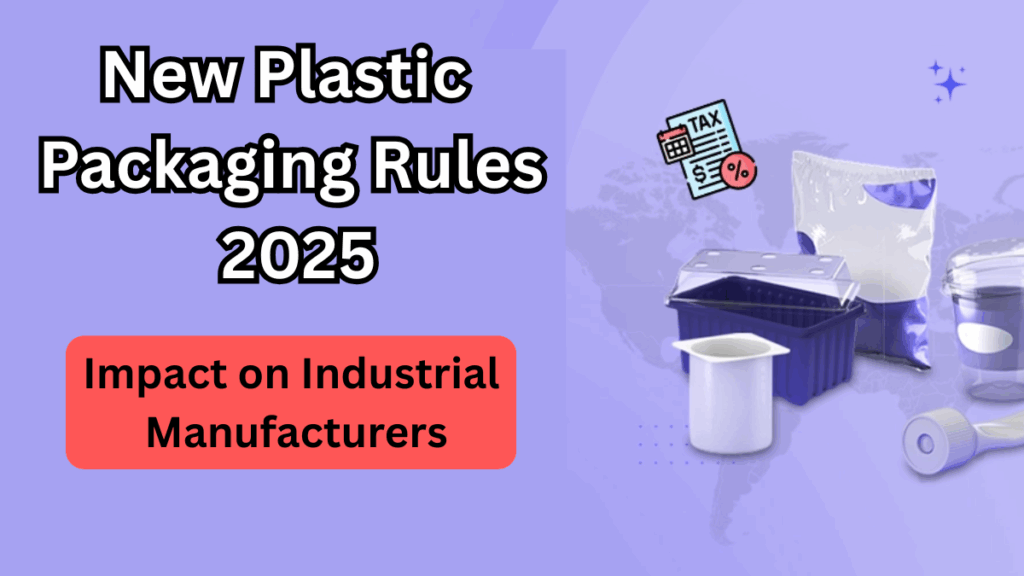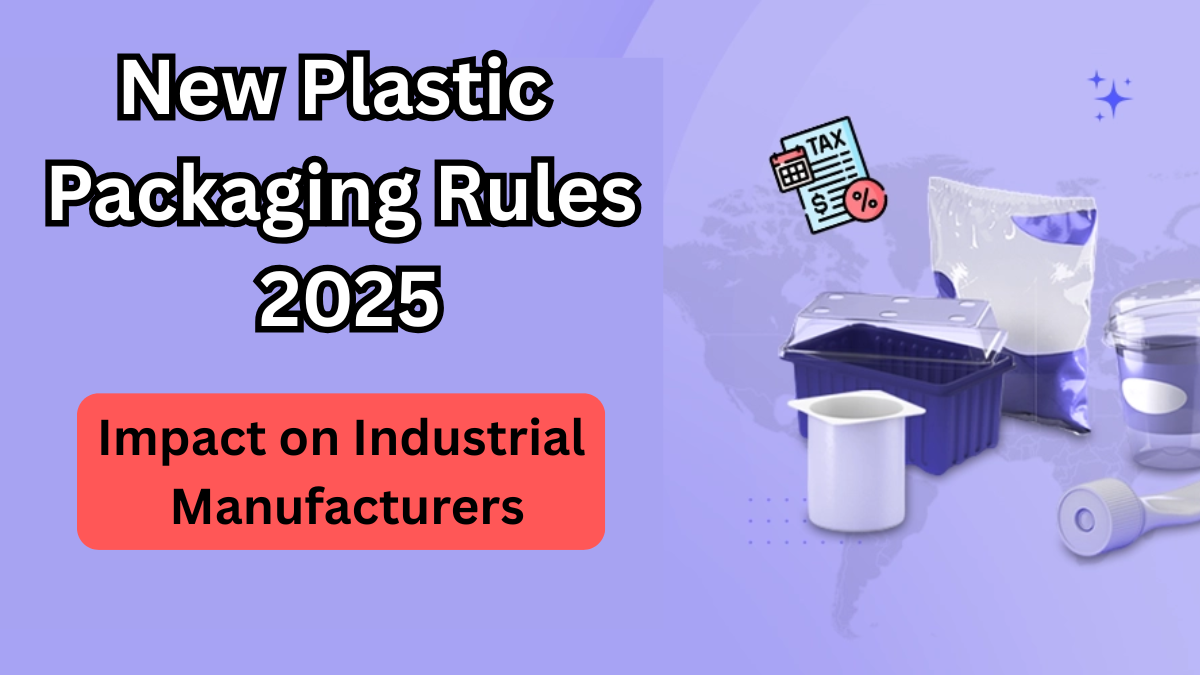The Indian government is rolling out Plastic Ban 2025 India, ushering in stricter regulations on single-use plastics and packaging materials. These rules are part of a broader effort to combat environmental pollution while promoting sustainable practices in industries. For industrial manufacturers, understanding the packaging law update is essential to remain compliant and avoid penalties.

What Are the New Plastic Packaging Rules 2025?
The new regulations aim to drastically reduce plastic waste by imposing limits on certain types of packaging materials. Key highlights include:
-
Ban on single-use plastics like carry bags, cutlery, and certain packaging films
-
Mandate for industries to shift to biodegradable, recyclable, or reusable alternatives
-
Compliance deadlines phased across different states and sectors
-
Requirement for industries to report their plastic usage and demonstrate reduction efforts
This packaging law update emphasizes accountability and transparency in industrial manufacturing processes, making sustainability a central focus.
Impact on Industrial Manufacturers
Industrial manufacturers will experience significant changes in operations, sourcing, and supply chain management. Key impacts include:
-
Material Sourcing: Shift from conventional plastics to eco-friendly alternatives
-
Production Costs: Short-term increase due to adoption of biodegradable materials
-
Operational Adjustments: Redesigning packaging processes to comply with new norms
-
Supply Chain Compliance: Ensuring suppliers adhere to Plastic Ban 2025 India regulations
Vertical Table Showing the Impact
| Aspect | Impact on Manufacturers |
|---|---|
| Raw Material Sourcing | Switch to biodegradable/recyclable materials |
| Production Cost | Increase due to eco-friendly alternatives |
| Packaging Design | Redesign for compliance |
| Supply Chain Management | Monitor supplier adherence to rules |
| Reporting & Documentation | Mandatory tracking of plastic usage |
Opportunities for Manufacturers
While the regulations present challenges, they also open up opportunities:
-
Adoption of sustainable packaging can enhance brand image
-
Companies can access eco-conscious consumer markets
-
Innovation in packaging materials and design can drive competitiveness
-
Collaboration with recycling and waste management firms can optimize operations
Steps for Compliance
Industrial manufacturers should take proactive steps:
-
Audit current plastic usage in packaging processes
-
Identify alternatives to banned plastics
-
Train staff on new compliance requirements
-
Implement tracking systems for reporting purposes
-
Collaborate with eco-friendly suppliers and vendors
FAQs About Plastic Ban 2025 India
1. What does the Plastic Ban 2025 India cover?
The ban focuses on single-use plastics, certain packaging films, and non-recyclable materials. It encourages industries to adopt sustainable alternatives.
2. Which industries are most affected?
Manufacturing, FMCG, retail packaging, and food processing sectors are most impacted due to high plastic usage in packaging.
3. Are there penalties for non-compliance?
Yes, industries failing to comply with the new rules may face fines, legal action, or restrictions on operations.
4. How can manufacturers stay updated on the packaging law update?
They can monitor government notifications, attend workshops/webinars, and consult environmental compliance experts regularly.
Click here to learn more
